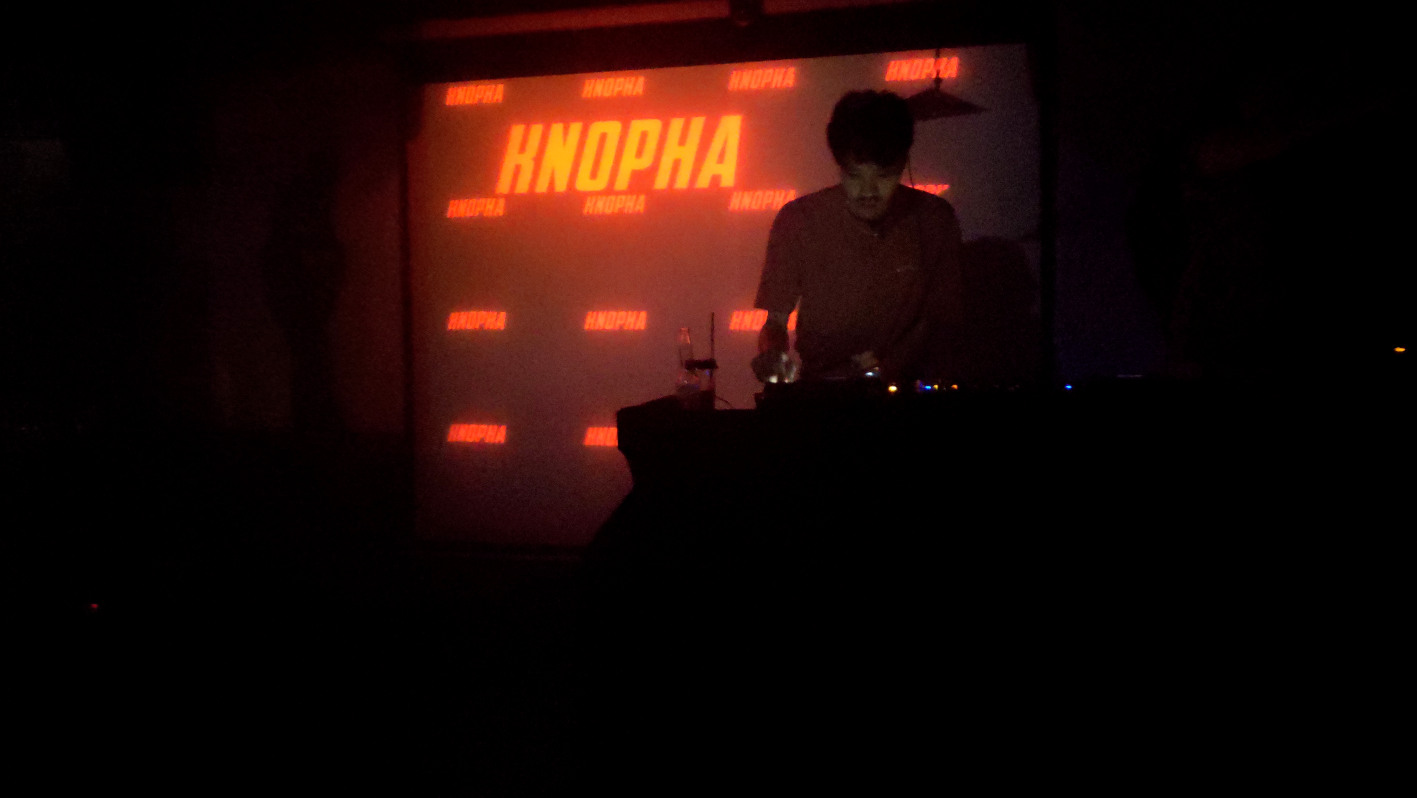All photos by Jaime Chu.
Having endured draconian anti-virus measures, China’s club scene is back on its feet again. Jaime Chu follows the low-key Knopha around the country and tells the story of a DJ who connects disparate scenes as effortlessly as he blends different styles in his sets.
The Zhaodai on Leave festival at Aranya was a mouthful to explain at first: there were no tickets, but you needed a room reservation at the beach resort to attend. The accommodations range from official tents or vacation rentals to luxury hotels, and scarcely anything in between. Due to hospitality regulations, not uncommon in China but increasingly stringent, the majority of options did not allow guests with foreign passports. Still, it would be the first outdoor electronic music festival in China after the COVID-19 pandemic had crippled the country in the first half of 2020. “It’s not that expensive if we share a house,” friends tried to convince friends. “Everyone is going.”
The gated community Aranya at Bohai Bay in North Eastern China is the closest thing Beijing has to a back garden. The water along its three-kilometer coastline is unswimmable and the sandbar is artificial. “The world’s loneliness library,” the 5000-square-foot public library with a brutalist façade broods expectantly for light-hunting influencers, bourgeois parents and their children. Prohibitive logistics aside, the festival exploded from what the organizer, Beijing’s Zhao Daiclub, expected to be a small-scale off-site for hardcore fans in the region first to a meme about one Chinese Eastern flight shuttling fashionable subculture Shanghai and then to the event on social media that weekend. The all local line-up and majority local attendance – upwards 1000 at peak time by various estimates – refreshed a confidence to the idea that underground electronic music, despite being a foreign import, is finding legs on its own here after all. The timing and irony that the country with the most draconian anti-virus measures is now the country with the most capacity for unencumbered fun were not lost.
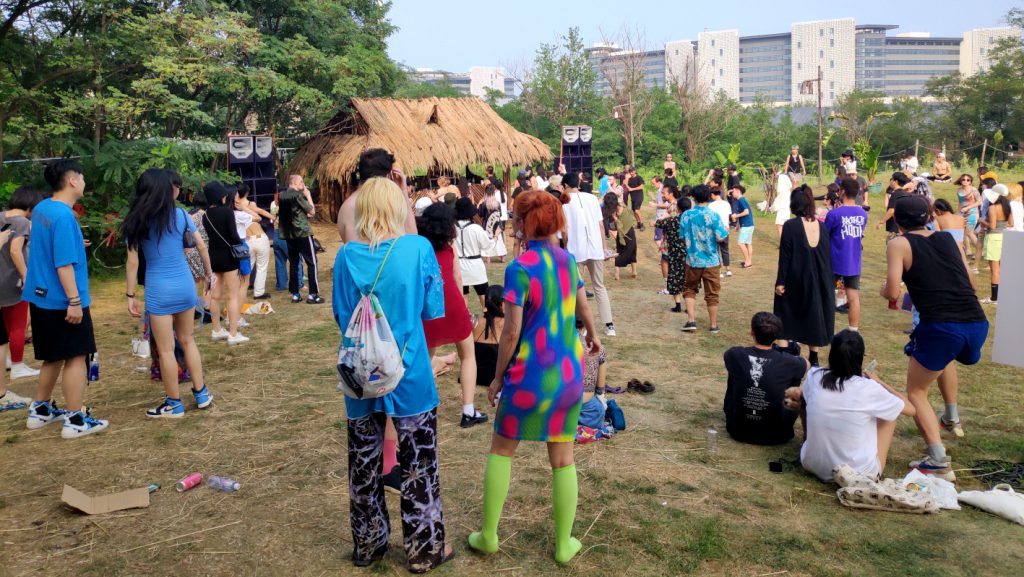
That last weekend of August, Aranya was spared a typhoon that swerved at the last minute to pillage the southern Korean peninsula instead. The festival went on, buoyed by a surreal optimism of a post-pandemic miracle that was organized in two months. Instead of building around headliners, the schedule was loosely divided into showcases that represented regional collectives and clubs such as Shanghai’s Svbkvlt and Shenzhen’s Oil , while marked by Zhaodai’s taste and ties to Beijing’s music community. The Beijing-Shanghai queer axis Donggong Xigong x Medusa put on a crowd-favorite drag show, a high point on Saturday night before it plunged into Ilsee’s dark and twisty sidetraps and the hardcore depths of the crew from Chengdu – Cora, Ewan, Hao. Rookie or filler acts that sometimes pad music festivals during the hungover hours between noon and 4PM had a chance to play to an outdoor crowd on a metallic, trance-y mood board of a stage outfitted with the latest Funktion One mixer and speakers.
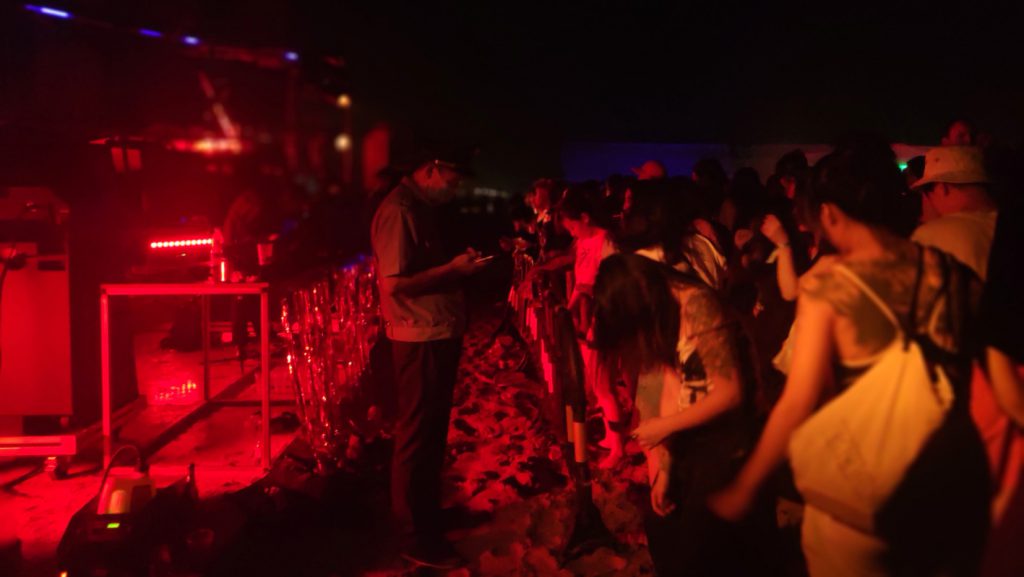
Despite minor grumblings, the success of Zhaodai on Leave seemed to have boostered the domestic electronic music community with a sense of mutual appreciation and survivor’s solidarity. China is a big country that spans five time zones, but most major cultural hubs could be reached within three and a half hours by plane or five hours by high-speed rail. The lack of international exchange would still be detrimental to culture in the long term and the next generation of local talents might not be maturing quick enough to meet programming and producing demands. For the time being however, clubs around the country are playing hosts to each other’s resident DJs and the circulation is metabolizing at a high enough rate that helps with name recognition, if not yet completely exhausted.
Somewhere in Between, Just Where He Should Be
Knopha was tasked with closing duties on the last festival day—a blessing in the sense that it was a sign of trust from Zhao Dai and a curse in the sense that he felt the pressure mounting as he expected the crowd who lasted till the very end tend to be pro-ravers and DJ friends. He came in with a bold triptych: a St. Vincent remix by Pearson Sound, trance from Paradise 3001 and Otik’s ambient but clubby “Wetlands”. The effect was not unlike an interior decorator who swooped in, cleared the floor and installed furniture you didn’t even know you liked. It only took a few choice pieces to show his range, which eventually led to chimey percussion layers and his own take on the Taiwanese pop anthem “Theme Song of Love”. Yang Yang, co-owner of Oil, named the epic two-hour set as her favorite without hesitation and Mau Mau from Shanghai’s Elevator, who never wasted an evangelical opportunity – he wrote Knopha’s DJ bio – said it would “go down in history.” Young DJs and producers like Ilsee, Hyph11e and Chuan all looked up to him.
The overwhelming consensus sounded like Knopha’s worst nightmare, remembering what he said about being afraid to disappoint. He didn’t think he deserved attention: “Why would anyone care about a small-time DJ?” His knee-jerk reaction to compliments, however teasing, is to deflect, with a laugh that sounds like the laugh-cry emoji, but he is not without a point. To the outside world that is not hopping up and down for hours at a time in a dark, smoky place, a DJ is “cool” at best and small-time at worst.
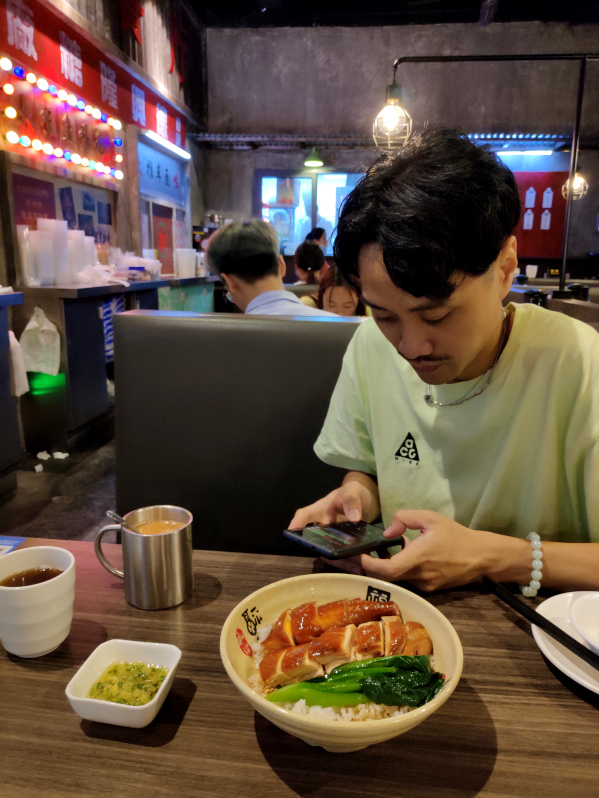
A month after Aranya, Knopha returned to Beijing. October 1st, National Day in China, the beginning of its biggest holiday week and the heat of fashion month, coincided with the Mid-Autumn Festival this year. Knopha began a busy week starting at the Zhao Dai club that night, playing a mix of functional breakbeats, house and erratic hip hop edits for two hours before Slowcook took over. While functional club tracks would have done the job at most clubs, coming from Knopha, it felt unusual to the point of curiosity. “I felt extremely lost about what to play for about fifteen minutes. This is not a crowd that wants to listen to techno,” he confessed after the set. “Eventually I came around and decided to play something I have never played here before.”
You could accuse Knopha for a lot of things—no drops, no white noise, no attention-deficit dependency on new hits—but you could not accuse him for not playing seriously. I thought of his grounding spirit as off-hand but deliberate, while he describes it as “fierce but not without a sense of humor.” It’s about building trust, too. The contract of fun is as much about taste as it is about work ethics: do you trust the series of decisions that they will be making in the next two hours?
30% Talent, 70% Hard Work
The “WAP” edit at Zhao Dai that night actually didn’t seem so surprising considering it was hip hop that first got Knopha into music seriously as a teenager. Born in the southern metropolitan city Guangzhou, Knopha grew up in the heart of the old city under the influence of his father’s love for Whitney Houston. During high school, around the time of his parents’ separation, he and his friends formed a crew, discovered sampling, and toyed with FL Studio. The moniker Knopha stuck because people often had trouble pronouncing his name, Noah. They would rap in Cantonese and battle other local crews (“delinquents”) after school. The local scene was derivative and cut-throat, and for a while, he questioned if it was his own cowardly and uncompetitive nature that kept him from thriving, until hearing Kerri Chandler admit that he’s the same in an interview.
Despite the extracurricular, Knopha had good grades throughout high school, albeit not when it mattered. His studio art skills were good enough, but he didn’t test well enough to get into art school. After three passionless years as an international business major at his parents’ urge, he accepted that it might be a good idea to do something useful to differentiate himself in the job market, like getting a design degree abroad. Australia made sense because a cousin lived there, and because—he said with a straight face—he was scared of the violence in America under the impression of all the hip hop he listened to.
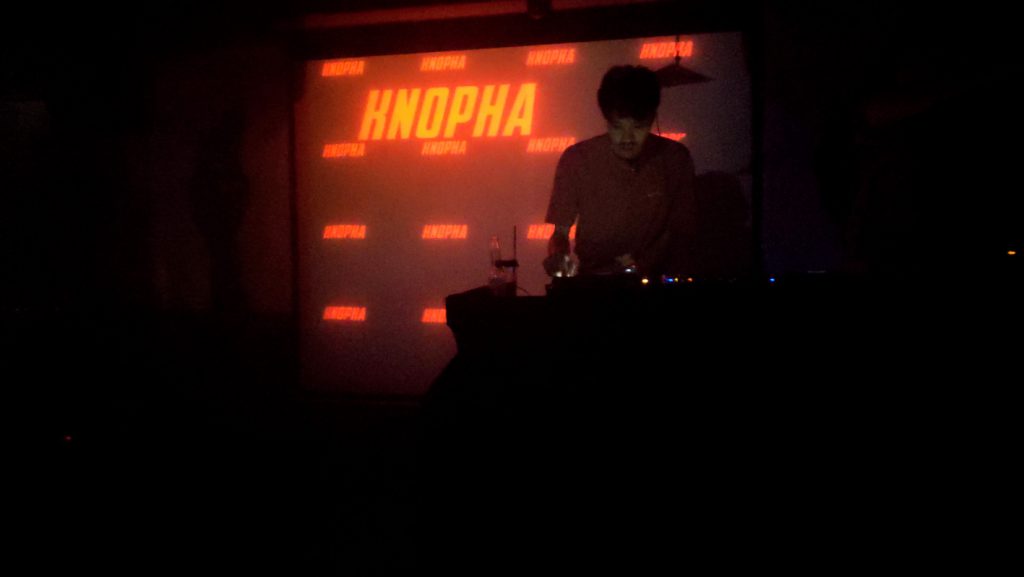
Melbourne, laid back and away from the petty beef in the Guangzhou hip hop scene, impressed Knopha with a group of house producers who each had their own distinctive style and a DIY, self-sustaining culture that didn’t seek validation from Europe or America. He spent his spare time outside of school digging through house and disco classics crates at the record store next to his school and began to explore DJing. Without any formal musical training, Knopha learned by tinkering equipment on his own and through trial and error. Even now, he feels self-conscious about a lack of technical proficiency in comparison to the “true pro’s,” but he did have an inkling that he might have a knack for this early on. He remembered taking a stab at an open deck at a small bar (that was somehow equipped with Funktion One) in Chinatown once, seeing the DJ before him played a series of Motor City Drum Ensemble tracks in a row, and thinking, “wow, are you serious?” That night, when Knopha played Round One’s “I’m Your Brother”, the crowd erupted in cheers. It was the first time he felt the joy of DJing.
“I was really shy as a kid—I still am. My voice would shake whenever I had to talk in front of people in class. DJing was the first thing I did that made me feel like, I’m not so bad at this. Eventually, I realized it’s the only thing I can do, so I might as well do my best. At least that’s how I hype myself up when I get nervous.” Knopha found out he is good at not thinking about genre; instead, it is more useful and natural for him to listen for the connections between them. Hence he found a lot to learn from new age music for its free form and surprises, in combination with going for breadth and depth in his own music discovery. Taste alone wasn’t enough to make a career. Even as he grew into his calling, he would attribute his success to 30% talent and 70% hard work. “People plagiarize because they don’t have research skills. You can be original if you would dig even just a little deeper.”
Without a permanent job in Melbourne, his visa eventually ran out. By that time, he had realized he didn’t have the obsession it took to be a great graphic designer. He returned to Guangzhou and sought temporary refuge working at his dad’s export company, until a friend who was starting a fashion label in Xiamen needed a graphic designer. This gave him the perfect opening to move to Xiamen, the city he has been calling home since 2014.
Very Guangzhou (Whatever That Means)
The day after his gig at Zhao Dai, Knopha flew to Guangzhou for a Jordan XXXV launch event with his At Between crew and an opening party at the newly revamped Long Bar. “It’s a basement that used to be a karaoke parlor. Very Guangzhou,” Knopha tried to describe. What does “very Guangzhou” mean, I asked. I hadn’t been to Guangzhou since I was a child. “You’ll see.”
Whatever Guangzhou is, it didn’t give Knopha much to look forward to. His parents are now split between Guangzhou and nearby Foshan. The district he grew up in has lost much of its identity since it merged with another historical district in 2015. The quality of old-time dining institutions has deteriorated, even though Guangzhou is supposed to be one of China’s food capitals. A small relief was the rare occasion of being able to communicate in Cantonese, our mother tongue, especially when, throughout the past decade, the government has worked to eliminate dialects in the public sphere and Cantonese is no longer as widely spoken and being taught in school in the region.
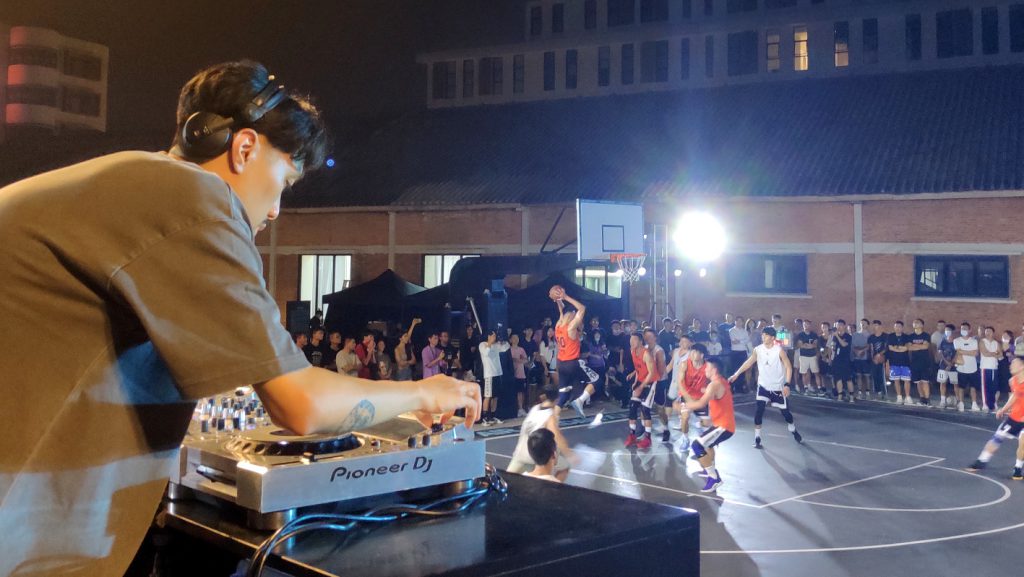
While neighboring Shenzhen has Oil, which Knopha calls “a flagship of clubs,” electronic music in Guangzhou doesn’t amount to a scene beyond a sprinkling of dedicated but undernourished parties over the years. While Guangzhou used to be a convenient base for expats subject to a non-competitive lifestyle and periodic visa runs to Hong Kong, the pandemic entry restrictions for foreigners have taken away a sizable audience in a first-tier city that’s third-tier in taste-making. The old Long Bar drew a crowd five years ago, but it shuttered after a year and a half because of either the owners’ dispute or a drug bust or both.
When one of the owners decided to reopen the club this year, they tapped Tribes, a promoter and DJ from Manchester who has been living in Guangzhou for ten years and heads the Hoodoo techno collective, to help with the programming. Long Bar was lucky that Tribes is the kind of person who says yes. He decided to invite Knopha, whom he saw for the first time at Hangover a few years ago and has stayed in touch with ever since. “Knopha was playing a lot of house that no one else was playing that I actually liked,” Tribes recalled. “I thought if people could see a legitimate DJ—and the best one at that—play at Long Bar, people would see the place as a legitimate venue.” Since there was no budget from Long Bar, Tribes paid Knopha out of pocket—his self-purported “socialist approach” to party-organizing.
Approaching midnight, as the car went down a small slope and getting closer to the Pearl River, my Didi driver was convinced we had overshot and there was nothing where we were going, let alone a “club.” But then there it was, a restaurant complex that stood alone like a cruise ship by the dock. Inexplicably, the entrance to Long Bar has a neon sign that says Knight Bar and a martini cup. An additional sign with “J F Bar” and a blond pin-up in a bikini, one hand resting on a turntable, hung over the staircase leading down to the basement. Very Guangzhou.
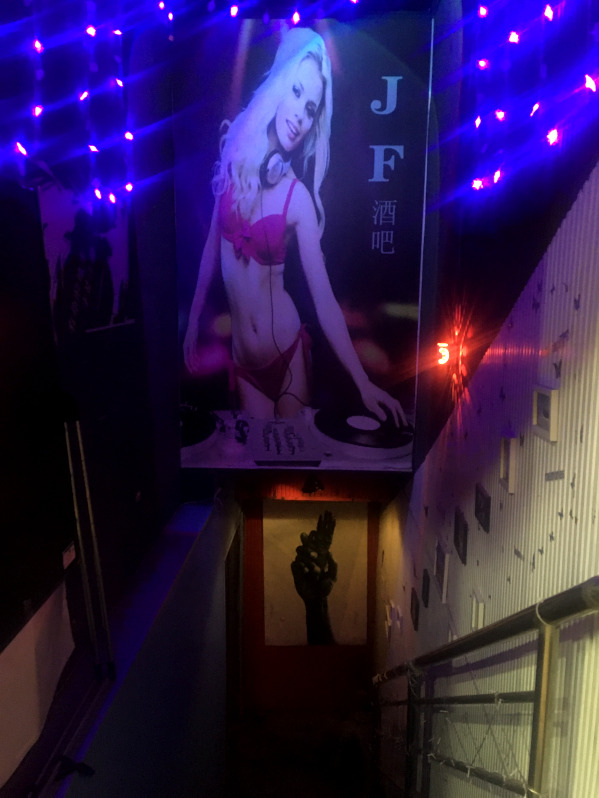
The kind of karaoke parlor Knopha described earlier was the kind with a slightly raised stage, one disco ball per leather booth, and every kind of laser light. Tribes had reconfigured the space so that the leather booths were pushed back to the periphery and the darkness hid the unused space, making the bar and the dance floor in the front area look more comfortably scaled to the 15 or so people who came out. They brought the energy of looking for hope in a hopeless place, not finding it, and being content to stay anyway. A girl with a platinum blond short bob screamed, “it’s so Berlin!” She had just moved to Guangzhou from Eastern Europe. A few kids tried to mosh at one point.
From the way Knopha was handling the groove, moving indulgently between Afro house and Pet Shop Boys, you wouldn’t be able to tell what he was working with: excessively loud and poor acoustics; multiple delays between the controller, the USB input, and headset. Despite wanting to remake Long Bar into a hotspot, the manager, a flighty, skinny man who acted too friendly too soon, had no intention of replacing the sound system or to procure equipment for the venue. Instead, Tribes has been bringing his own gear to the parties. A little after 2:30AM, Knopha finished his duty and sunk dramatically into a leather couch- he is willowy for his height, so it never feels like he is taking up too much space. As much as Knopha wanted to support Tribes, he was not hopeful about what would become of Long Bar. “The management seems accommodating on the surface, but without investing in a proper set-up, it’s not going to go anywhere.” The aggressive thump from the speakers haunted us as we waited for a car outside. “There is absolutely no reason why it has to be so loud.”
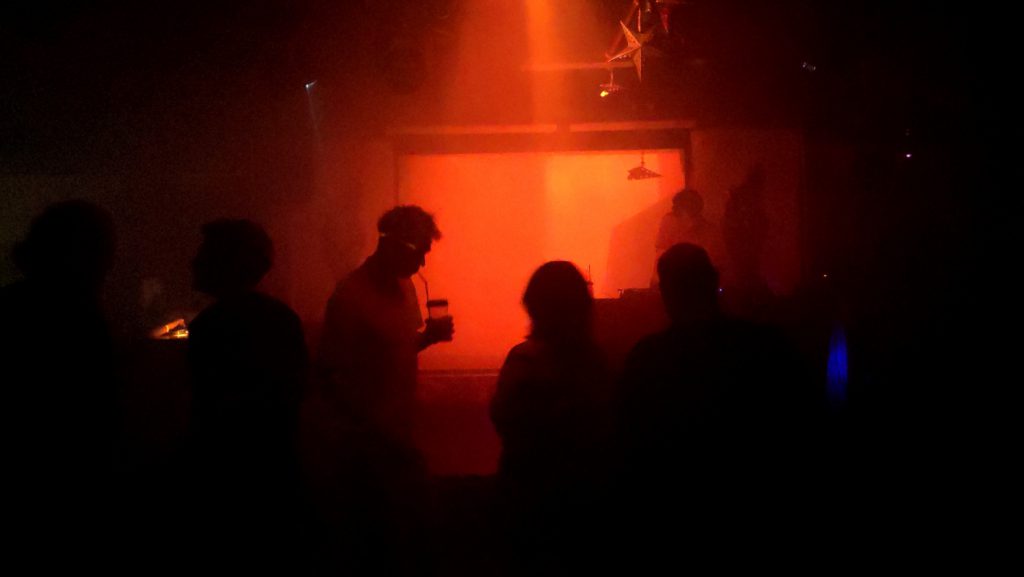
For the time being, bringing Knopha to Long Bar was as much as Tribes could do for the venue, already spread thin between raising a toddler and starting a label under Hoodoo. It would take a lot more passion—or desperation— to commit to building a community in an underserved city and it would be a pity to let a venue go to waste, especially when the management has a friendly relationship with the local police—arguably the most vital asset of a functioning club in China.
Small-Time Cool
A 4.5-hour train ride up the southeastern coast later, we arrived in Xiamen. The idyllic fishing port formerly known as Amoy is known for producing shoegaze, indie rock, and lo-fi pop. We had late lunch at a Hong Kong-style diner Knopha frequents—the only time I saw him get as close to displaying something like anger was when our server failed to enter our order and our food arrived 45 minutes late. He has a lot of disdain for the injustice and incompetence he encounters, even though he couldn’t be bothered to confront them most of the time.
Home at last for a few days before setting off for gigs in Shanghai and Boiler Room in Beijing, Knopha was hosting Hao from Chengdu tonight. After lunch, we met up with Hao and two friends at Thank You. The owner of the all-day café-bar is one of Knopha’s oldest friends from playing music together in high school and it was him who had introduced Knopha to the crew at the Xiamen streetwear label atBetween.
Not long after moving to Xiamen, Knopha began putting on Beatween parties under atBetween, at first because there was nothing to do in Xiamen thanks to a local government that didn’t support club openings at the time. The first party took place on a rooftop in the summer of 2015. “It started out with getting local DJ friends together. And friendship has proven to be the best medium. Booking just any artist would’ve made it too commercial. There is no connection, and they might not even remember you after showing up to the gig.” He spoke as someone who has been burnt by superficial social promises that took courage to initiate but ultimately didn’t amount to anything. “We were very lucky that a friend of my girlfriend’s knew Bell Towers and he became our first international electronic act. Through Bell Towers, we got to know Jack J and Mood Hut…” Playing at the Beatween parties, Knopha’s eclectic, new-age house sound also began to find its way through the vines.
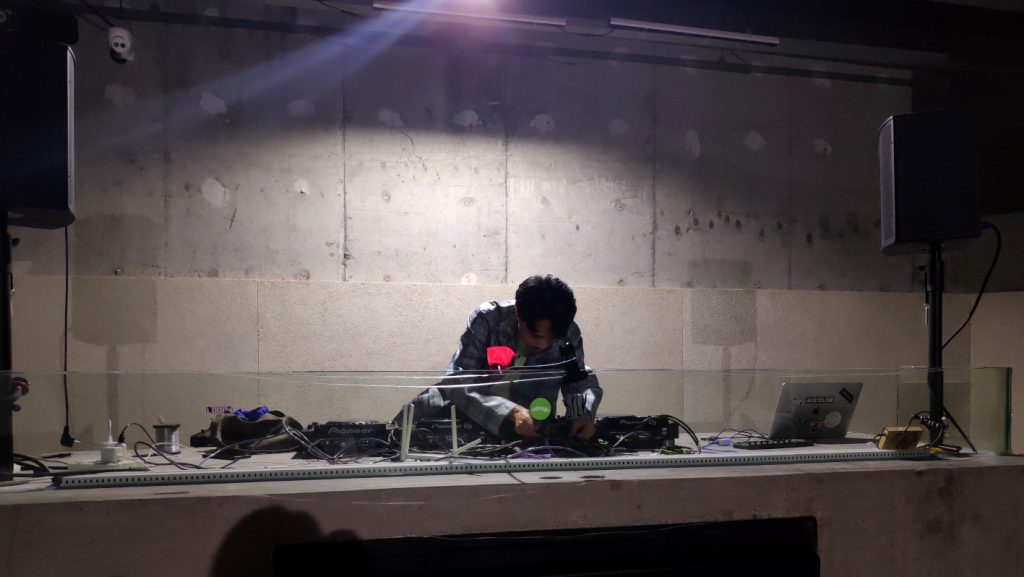
ATP, short for All Tomorrow’s Parties (but not to be confused with the European festival of the same name) opened this May on the bottom floor of a sunken plaza in a relatively new development on the island. The Xiamenese owner, photographer and DJ Zhenwei, perked up whenever it came to talking about his hobby-turned-business. He owes much of his dance music education and DJ tips and tricks to Knopha. The club and its combination Junction Bar was an idea that he had been thinking about for two years and finally managed to open with his savings and some credit. Beatween now has a base at ATP to invite tours and acts such as Howie Lee, Kaishandao, Hyph11e, and this weekend, Hao, who founded the queer parties series Seafood at TAG.
Knopha had warned about Xiamen’s underwhelming stamina. Parties usually wrap by 2AM, not to mention National Holiday could be unpredictable, and many of the university students would be out of town. But perhaps Hao could do his part and take the crowd through a long-distance set. Mau Mau once described his stance as a “gently swaying dolphin,” even though his jungle and acid techno sequences at Zhaodai on Leave were anything but gentle. It had been a while since Knopha played an ambient set, but opening for Hao, he felt at home, if that meant more than at ease. Even though he would still say, off-handedly, things like “no one comes to my sets.”
The club itself was imperfect in its infancy, despite Knopha’s nagging advice to Zhenwei: The soundproofing could improve; the wooden dance floor is too spacious; the white light from the bar window is too bright; the fog machine seems to be leaking grease. It would have all been fine if the ideal vibe was a cool-cute high school dance, which was what it felt like that night, as convivial groups trickled in and out of the hall, bouncing up to strangers mistaken for long-lost childhood friends. I recognized a track Knopha had played on the first night at Zhaodai on Leave, closing out the smaller forest stage at midnight. Most people had moved to the main beach stage at that point and the remaining handful of people hung around the periphery of the grass field. Except for one dude who was standing with his arms crossed right in front of the little wooden hut that was the DJ booth. It seemed to me so simple then, at that moment, what each of us were doing and why we were there, how unspeakably immense and how insignificant at the same time.
“It was so awkward,” Knopha had said the next day, the first time we talked and I asked how he felt about last night. It didn’t sound ideal, but it seemed on brand for a 35-year-old with a wavy center-part and moustache, showing up to camp in a traffic-cone-orange shirt that reps Beatween, enjoying the music and paying attention and otherwise saying very little. The kind of humility one could decide to trust.
This article is part of the Global GROOVE: Electronic Music Journalism series, hosted by GROOVE in collaboration with the Goethe-Institut. Read all other articles here.
Jaime Chu is a freelance writer and translator from Hong Kong currently living in Beijing. Her writing on art, culture and politics has appeared in The Nation, Spike, Electronic Beats and The Baffler. You can find her on Twitter.
